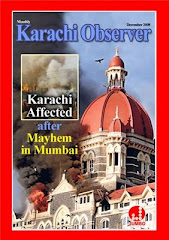Significance of efficient traffic control can not be denied because of the complicated traffic flow in the metropolitan cities like Lahore. To improve the complex traffic flow the department decided to introduce new personnel consisting of both males and females. The novelty in the whole process was the recruitment of females in the Traffic Police Department. However, the induction of females is not the sole factor to ensure a better traffic pattern but it is one of the important means to achieve the goal. The induction of females in Traffic Police Department is entirely a new phenomenon introduced in Pakistan. Different societies have different tendencies towards the females joining those jobs which are labeled as “men’s job”. Society like Pakistan has different opinions regarding females’ jobs.
It is appeared that majority of the lady traffic wardens belong to medium income category, so salary, rank and designation turned out to be three significant features in the job that led females to join this arduous job. Lady Wardens and their families considered the job prestigious, but the level of public acceptance is not reasonable which creates hurdles for females in deciding to pursue the job or not. This low level of public acceptance might be because of low literacy rate and the prevailing pre-conceived notions (like women should stay at home or at the most should do office jobs) in our society. It can also become a traumatic factor for females to get prestige which can affect their professional commitment.
Public acceptance is a decisive factor in joining a job for females. Lady Wardens have the view point that literacy level is a distinctive factor for a better public acceptance level. Moreover, the cultural and religious notions attached with working women are a barrier for them to be accepted by the masses. Moreover, public acceptance is a factor that directly or indirectly influences the prestige and authority of the female workers.
Keeping in view the Pakistan’s society the recruitment of females is a radical change, where public is not ready to accept this drastic change abruptly. Although lady traffic wardens are fully facilitating the public in traffic affairs, also educating them about traffic rules and regulations even then the department has not achieved the consent of the general public as far as accepting women as traffic controllers is concerned. The deep rooted pre-conceived notions have restricted females in gaining a respectable and honorable status in our society. As we all have an egalitarian perception that traffic police department is the most corrupt in its nature and uncivilized in behavior, it can substantially affect the performance of lady traffic wardens and it’s a very hard job to get rid of such malicious image.

Induction of women in Traffic Police Department, which is primarily a male-dominated sector, is a new observable fact for masses. The job encompasses both pros and cons for women willing to enter and who are engage in the job. Positive aspect is that it is a new dimension for women empowerment, which can open new paths for women to step on and can explore their abilities and skills. Moreover, if they can compete with men and can go along in the professional field, which is male-oriented. However, the negative side to it is the dire need of satisfactory public acceptance. Poor public acceptance can severely cripple the morale of lady traffic wardens and of the women aspiring to enter in the job.
Giving a new opportunity to women and then receiving warm response from them clearly indicated they have a desire to gain authority and prestige from the job. They also get inclined to those jobs, which are prestigious and authoritative in nature. The lack of opportunity for those jobs, which include prestige and authority, might be the reason they did not opt for any such occupation. Furthermore, the introduction of this new concept woman controlling the traffic on roads is a social change, which will take some time to be properly accepted by the public because radical changes brings about radical reactions and this step was one of those. Conclusively, it is a positive step towards the women empowerment. It is a source of inspiration for upcoming women.
There are certain recommendations for the improvement of the departmental structure. In order to facilitate the lady traffic wardens, policies can be devised for the positive influence on the prestige and authority of lady traffic wardens also how public consent can be achieved which can eventually help the authorities in making the department a better institution.
1. Department should raise public acceptance through different means like arranging seminars, publishing articles, advertisement on print and electronic media and orientation to community people.
2. Lady traffic wardens should be provided better facilities while standing at the roads to prevent themselves from the extensive weather conditions and pollution.
3. Renovation and the construction of the sectors is a dire need as it will provide them more comfort and improve the efficiency of the work.
4. While standing on the point of duties, lady traffic wardens should be given proper security by the department to prevent them from the harassment of public.
5. Discrimination from the seniors should be reduced as they are not fully satisfied with the behavior of higher authority.
6. The official work should switch to digital system i.e. computerized system from the manual system, it will make official working more efficient.
7. To increase the authority, lady traffic wardens should be provided with weapons to defend themselves and public in any mishap but with the proper training of how to use the weapons.
Email:fraz.ahmed@hotmail.com






































